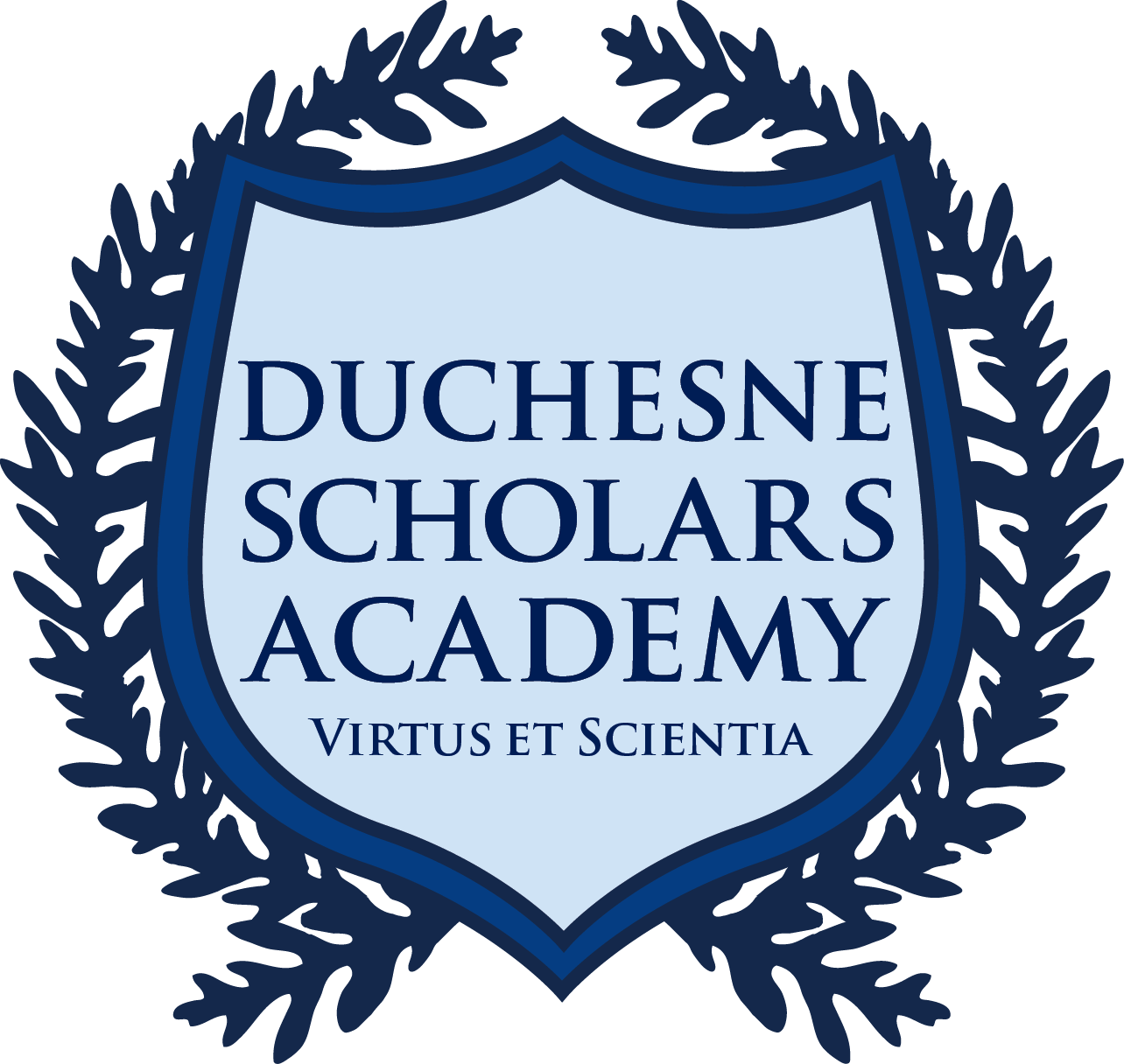Duchesne Scholars Academy
Duchesne Scholars Academy: a comprehensive curriculum driven by student curiosity.
Beginning in the 2016-2017 school year, Duchesne High School implemented the Scholars Academy—a comprehensive curriculum in the school’s pre-AP, AP, and Advanced College Credit courses. Scholars Academy students take auxiliary classes designed to complement their core curricular learning, culminating in a senior-level capstone project of their choosing.
The Scholars Academy progressively layers curriculum and guides students to self-directed study. An Academy graduate will feel confident in answering questions posed in a collegiate level course. More importantly, Academy scholars will enhance their innate curiosity and contribute to the direction of the curriculum. The Scholars Academy encourages such independence through the auxiliary classes designed specifically for students in the program.
Academy scholars increasingly gain control of their education through the auxiliary classes offered by the program. In their first year, Academy freshmen study the Big History Project. As sophomores, scholars work in a project oriented STEM lab. In their junior year, students in the Academy work with their instructors to create a syllabus for an inquiry-based humanities class. As they prepare to graduate, senior scholars complete a capstone project, an individualized and self-directed course of study.
In order to continue through the program and graduate as a Duchesne Scholar, students need to fulfill requirements beyond those dictated by the standard curriculum. Each graduate of the Scholars Academy needs to maintain a 4.0 G.P.A. and successfully complete 18 credit hours of honors, AP, or ACC courses, completing at least 4 credit hours per year. The courses selected must exemplify the core values of the Academy: curiosity and exploration. Additionally, students need to successfully complete the 2.5 credit hours of auxiliary courses offered by the Scholars Academy.
The Auxiliary Courses
Freshman Year: Freshmen study the Big History Project curriculum—a course devoted to the philosophy and history of science.
Sophomore Year: Sophomores pursue STEM activities in a project-based learning environment. This course focuses on the science, mathematics, and engineering necessary in solving problems, as well as the design concerns that develop around presenting solutions.
Junior Year: Juniors take an inquiry-based humanities course, in which the instructor and students collaborate to design the syllabus. Students have a voice in the questions the class addresses and the texts—ranging from literature, to works of art, to philosophical arguments—that they study.
Senior Year: Seniors create a capstone project, a high school version of a university-level master’s thesis. The capstone project builds on concepts from prior courses. Students might highlight the philosophical outlook of an author they encountered in their humanities class, or market an amusement park for the roller coasters they designed in the STEM lab.

